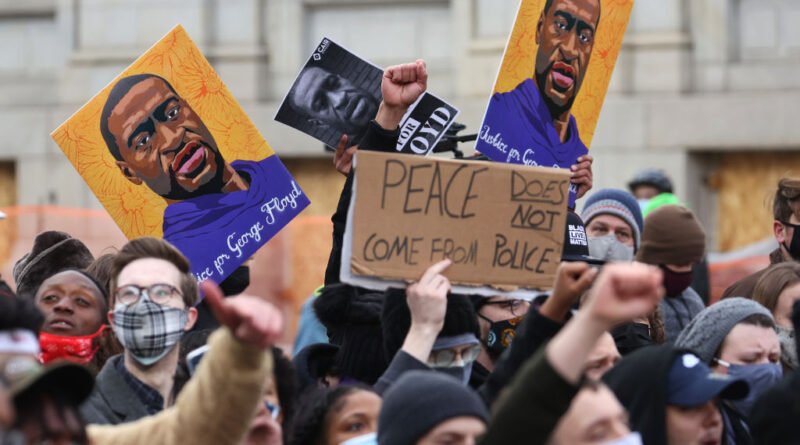Four Years After George Floyd’s Murder, Police Reform Efforts Stall
by Daniel Johnson
May 25, 2024
The momentum that was generated by Floyd’s murder has disappeared as legislative efforts languish.
The murder of George Floyd by Minneapolis Police Department officer Derek Chauvin in 2020 was allegedly a transformative moment in the history of America. However, four years later, the country seems eager to follow its usual pattern as incidents of police brutality against Black individuals continue. The social justice legislation in his name, the George Floyd Justice in Policing Act, has yet to move forward.
As Reuters reports, the momentum that was generated by Floyd’s murder as well as others that year, like Breonna Taylor and Stephen Clark has disappeared as legislative efforts have borne no fruit. Community advocates, family survivors of victims of police violence, and advocates remain frustrated by what they describe as the stilted progress of the summer of 2020.
Stevante Clark, Stephen Clark’s brother, told Reuters that he does not believe that the Biden Administration has been aggressive in pursuing justice for his brother or George Floyd.
“You can’t honor the life and legacy of George Floyd without passing comprehensive policy and legislative change to prevent George Floyds from happening,” Clark said. “I don’t think the Biden administration has been aggressive enough when it comes to this crisis — and this is not just a Black fight — this is for everybody. People have become desensitized by police murder.”
The Biden Administration reiterated its desire on May 24 for Congress to take action on the George Floyd Justice in Policing Act, which was introduced in 2021 in an attempt to address aggressive actions from law enforcement officers, misconduct and racial bias. The bill stalled in 2021, which Biden blamed on the tactics of Republicans, and a day before Biden stated “I will continue to urge Congress to send the George Floyd Justice in Policing Act, which ensures law enforcement accountability, to my desk,” Democratic Congresswoman Sheila Jackson Lee reintroduced the bill.
Police reform has taken a backseat to concerns like the economy and outbreaks of violence in Ukraine and Gaza. While not seemingly a concern nationally, police reform remains a central focus of Black voters.
In a piece examining the fall of Baltimore prosecutor Marilyn Mosby, Slate spoke with Phillip Atiba Solomon, a co-founder of the Center for Policing Equality and the chair of African American Studies and professor of psychology at Yale University. Solomon noted that the trajectory of reform follows cycles of backlash and the current backlash to Floyd’s murder is no exception.
“There was great appetite for the changes of scale and scope of the problem in 2020—that appetite died in 2020,” Solomon said. “If we’re looking for progress on any segment of justice, including reform, it should always be seen through the context of cycles of backlash.”
Another bill focused on police reform, The People’s Response Act, was introduced by Rep. Cori Bush in 2023. That bill is being supported by The Movement for Black Lives, a national coalition of over 150 leaders and organizations. According to a one-pager published by Bush’s office, the bill is focused on an “inclusive, holistic, and health-centered approach to public safety.”
That bill, experts warn, is expected to face resistance from both Republicans and more centrist Democrats despite its relatively modest aims.
Though the bill was also supported by Black Lives Matter in 2023, Cicely Gay, the Board Chairwoman of Black Lives Matter expressed concern that while legislation aimed at reform stalls, families are left to express their frustration at the slow progress of justice. “Our position is that reform is not enough,” Gay said, before adding that incremental reform is insufficient for grieving families. “We hear firsthand from many families about not only what they experienced, but the lack of progress, and in making policy change.”
RELATED CONTENT: Derek Chauvin Accused of Putting Knee Into Woman’s Back Months Before George Floyd Murder

